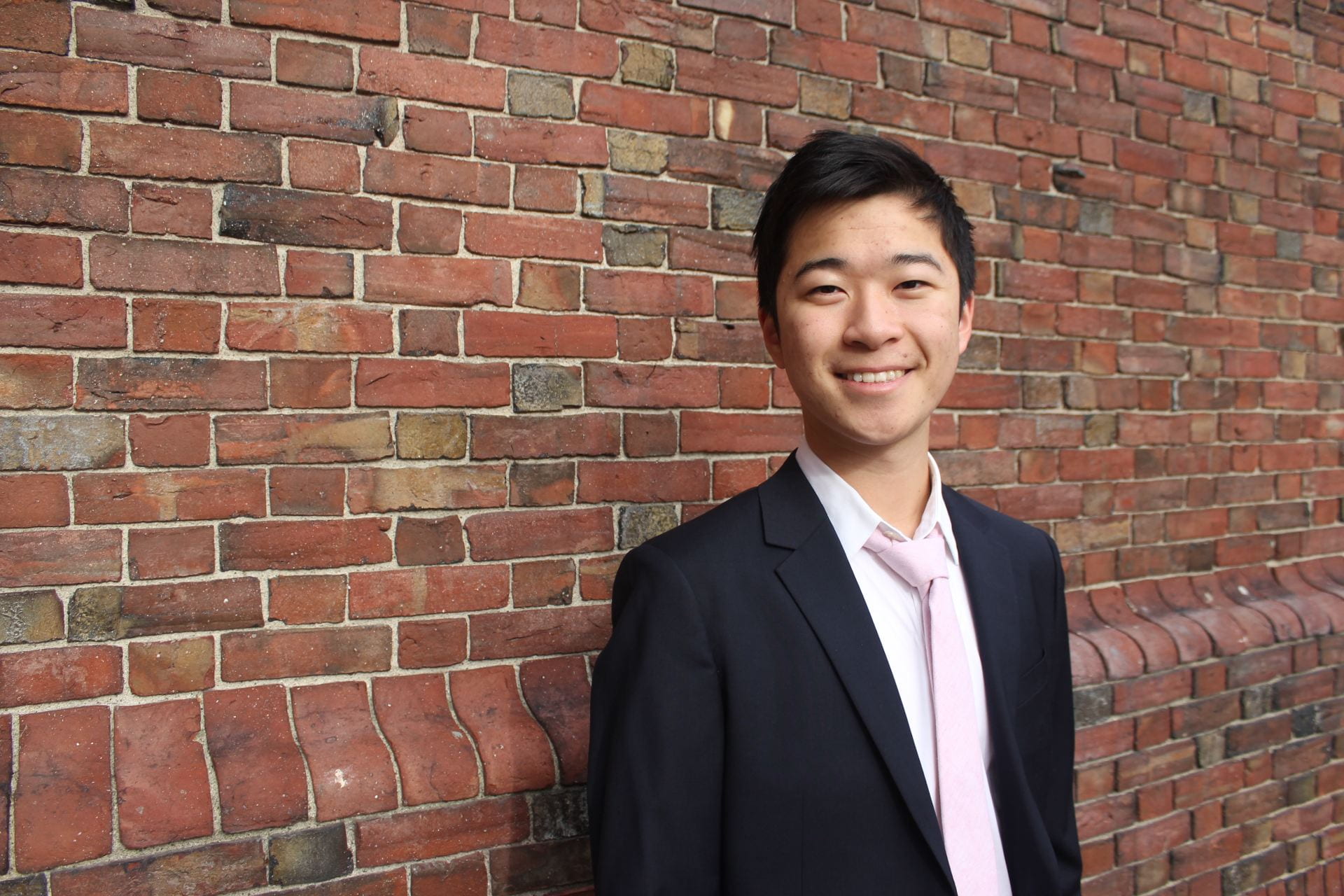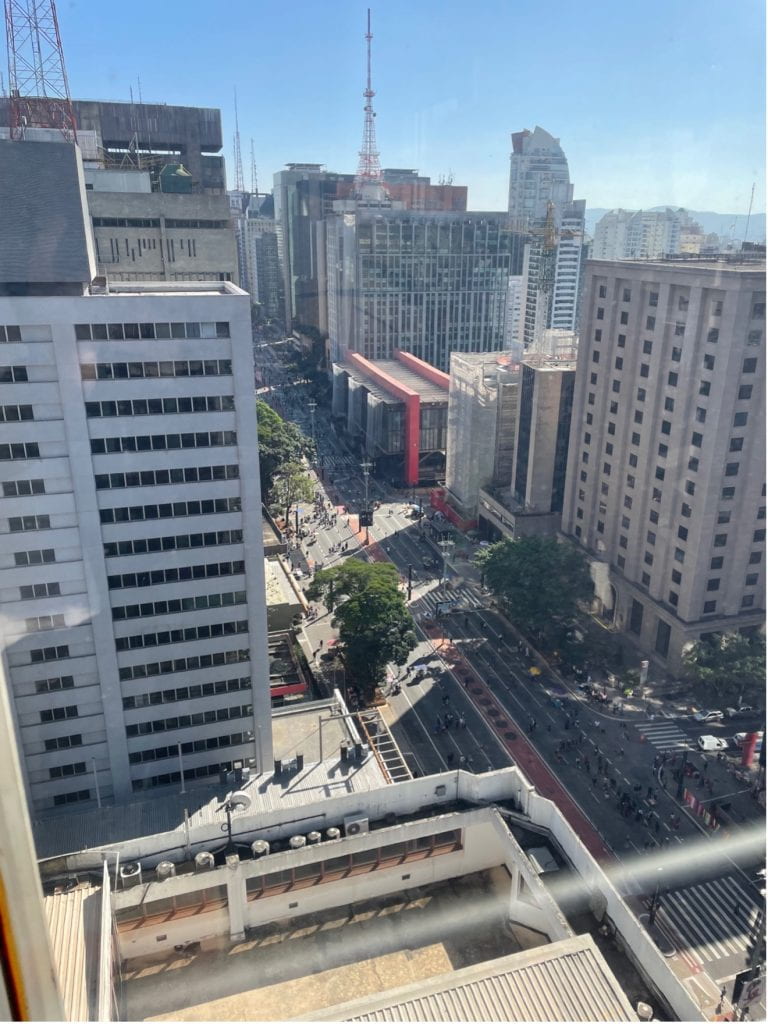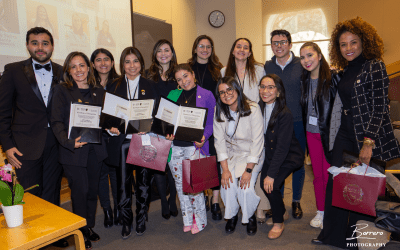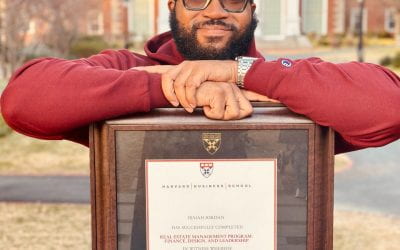
About the Author
Andrew Gong is a sophomore at Harvard College studying Government and Economics. Born in Los Angeles, California, he has harbored a lifelong passion for political science, East Asian/Latin American issues, and East Asian/Latin American food.
Every Moment a Memory
On Sundays, Avenida Paulista is closed to cars. The street—eight lanes wide, the heart of São Paulo’s financial sector, lined with gleaming skyscrapers—is covered with a sprawl of human activity. From high up in the DRCLAS office, we could see families chatting and taking their children for a stroll. Fluffy yellow smoke rose from street carts selling popcorn and musicians strummed on the street. It was a wonderful backdrop to our first orientation meeting in Brazil.

Avenida Paulista on Sunday morning, viewed from the Harvard DRCLAS building.
Since that day, I have spent more than two months in Brazil. For most of that time, I worked at my internship in São Paulo, but I also visited other parts of the country: Paraty, Rio de Janeiro, Iguaçu Falls and Manaus. I’ve come to realize that Avenida Paulista on Sunday—the bustling Wall Street of Brazil transforming into a lively town fair—represents many aspects of what I adore about Brazil. It represents the country’s relentlessly loving, artistic culture, the blurring of city and country and the melding of work and play. And throughout these past two months, I’ve had the privilege of getting to know that culture through my internship, host family and cultural excursions.
Learning from my internship began before I even arrived in the office. The first morning of work, I walked 10 minutes through the cozy neighborhood of Sumaré to the subway station, admiring the vibrant street art and nature along the way. At the station, I bought a one-way ticket from an employee in a stall—it was my first time speaking Portuguese, and it was terrifying. I passed through a catraca—a ticket gate—to board São Paulo’s sleek, modern subway towards Avenida Paulista. When I exited the subway, I swam through a throng of people to the narrow, tree-lined side street that leads to my office.
I share all of these details not just to set the scene, but to convey the variety of lessons I absorbed without even being at work. My morning stroll through Sumaré showed me a glimpse of Brazilian art and suburbia. The subway station taught me to be more comfortable with Portuguese. And while I knew São Paulo was the most populous city in South America, I never truly understood that fact until I was forced to dodge the crush of pedestrians on the street. When you are immersed in a foreign country, every moment becomes a lesson.
That mantra certainly held true for my internship experience as well. During my two months in Brazil, I interned at FGV, a private Brazilian university and think tank. I worked in the university’s political science department, assisting Professor George Avelino Filho with his research on elections, political parties and voting. More specifically, George was interested in the concept of the personal vote—the portion of a politician’s vote that originates from their personal characteristics, rather than their partisan affiliation or policies. How do politicians cultivate personal votes? Do different countries and political systems encourage personalism more than others? And of course, how does the personal vote play out in Brazil? To help Avelino answer these questions, I read and took notes on two books and more than 23 academic papers. My reading spanned countless topics and political science buzzwords: constituency service, legislative staff utilization, home style and more.
During the second half of my internship, I worked on a different project evaluating the electoral impacts of São Paulo’s 2006 establishment of the city-wide metro card, or Bilhete Único. I dug through a list of sources to find useful references for Avelino’s research paper, learning about retrospective voting, political accountability and the history of São Paulo’s public transportation.
My internship taught me an immense amount about political science. I was exposed to niche topics within the field and pushed to read articles that I never would have seen in school. But more important than any substantive knowledge I gained were the insights I picked up along the way—from my work, I learned research skills; from Avelino, I learned about academia as a profession; and from friendly interactions in the office, I picked up bits and pieces of Brazilian culture.
My internship was also an opportunity to experience work from another cultural perspective—compared to a U.S. job, my tasks were left incredibly open-ended, with fewer set deadlines and greater self-direction. While some of my greater freedom may simply be attributable to Avelino being a relaxed boss, these sentiments about Brazilian work culture were echoed by my other friends who worked in the country over the summer. Brazilians opt for affable advice over strict guidelines and friendliness over formalism. Perhaps the most jarring divergence from U.S. work culture was when Avelino told me I was working too hard! Rather than congratulating me on putting in extra time as a U.S. manager might do, George told me to take more breaks and explore Brazil more during my stay. It was a refreshing break from the intense paradigm of work that I had grown accustomed to in the United States.
In fact, feeling endlessly nurtured and cared for was a trend in Brazil. Locals are incredibly friendly, even to foreigners—one happenstance encounter with a stranger ended in an invitation to have coffee at their house. Another time, a clerk at a local coffee shop dropped everything to give our group a tour of their roastery and then offered us free samples at the end. Avelino also kindly invited me to attend a soccer game with his family—a must do in Brazil. Perhaps my greatest interaction with Brazilian care and hospitality, though, was my homestay family.
Before I had even arrived, my hosts were prepared. They had set up my room, organized a workspace, and even emptied out a cupboard in the kitchen for me to stock it with my own food. The day of my arrival, I was given a tour around the neighborhood of local attractions, restaurants and stores. They also introduced the city to me, offering suggestions of places to visit and activities to do throughout my two months in São Paulo. I had an endless supply of instant ramen in the pantry, because they knew I liked noodles. And of course, I was always well-fed with delicious Brazilian home cooking.
Of course, my homestay family served as a fountain of knowledge about life in Brazil. Food was a huge part of that, of course—with them, I ate my first farofa, moqueca and Brazilian-style pizza (imagine U.S. pizza, but covered with more cheese, onions, sausage and basically any other topping that you want). My hosts also revealed other quirks of Brazilian culture to me—Stranger Things is huge in Brazil, apparently, as is Austin & Ally! But the greatest cultural staple of all is criticizing the government around the dinner table.
In this way, I was exposed to Brazilian culture on a day-to-day basis. But our program also involved special excursions to dive more deeply into life in the country—to interact with locals, speak with experts and visit diverse parts of Brazil. These events were some of the most memorable to me. They pushed us to leave the comfort of our homestay families and workplaces to explore new places and ways of life. In Santos, we admired the lush Atlantic forest and toured a local coffeeshop with a rambunctious barista. In Paraty, we saw remnants of the country’s colonial history. We stumbled over streets of uneven cobblestones laid by Portuguese traders as a local guide spoke to us about life in the seaside town. The next day, we walked with a native islander as he explained his community’s struggles against privatization.
These stories and conversations were unforgettable not just because their content was interesting, but because their settings engulfed us at every moment. One moment, we would hear about religion in Portuguese settlements, and the next, we would turn to see the centuries-old church of the colonial community. Our guide would describe how predatory landowners were threatening his island, and then we would spot their luxurious property over a ridge. These moments made each story viscerally real and intimately personal; they took the struggles of local communities outside of the sanitized spaces of textbooks and studies. If nothing else, my time in Brazil convinced me of the immeasurable value of travel. Only by staying in a country—both admiring its beauty and facing its problems—can one come to understand it.
Of course, I was only in Brazil for two months. That is far from enough time to fully explore such an expansive, diverse and culturally rich country. But my immersion in São Paulo life was indeed immersive—by the time I returned to the United States, I was so accustomed to Portuguese that hearing restaurant employees speak English was disorienting. Brazil felt like home after just one summer.
On our last day in São Paulo, I found myself overlooking the city from the rooftop of the Harvard DRCLAS office once more, gazing down the corridor of skyscrapers along Avenida Paulista. It wasn’t Sunday; the street was packed with cars. Rain was pouring, as if to accentuate our somber mood. But far below, it was as if I could still hear the musicians strumming. Our goodbyes were punctuated with “We will come back!” and our final conversations were filled with joyful memories. I was sad to leave Brazil, but the experiences I’ve had, friends I’ve made and lessons I’ve learned in the country will stay with me forever.
More Student Views
Colombian Women Who Empower Dreams
English + Español
The verraquera of Colombian women knows no bounds. This was the message left with me by the March 30 symposium, “Empowering Dreams: 1st symposium in honor to Colombian women at Harvard.”
A Review of Born in Blood and Fire
The fourth edition of Born in Blood and Fire is a concise yet comprehensive account of the intriguing history of Latin America and will be followed this year by a fifth edition.
Resilience of the Human Spirit: Seizing Every Moment
In the heart of Chicago, where I grew up, amidst the towering shadows of adversity, the lingering shadows of generational demons and the aroma of temptation, the key to the gateway of resilience and determination was inherited. The streets of my childhood neighborhood became, for many, prisons of poverty, plundering, crime and poor opportunity.




